HILLBILLY ELEGY (2020)
A Yale law student drawn back to his hometown grapples with family history, Appalachian values and the American dream.
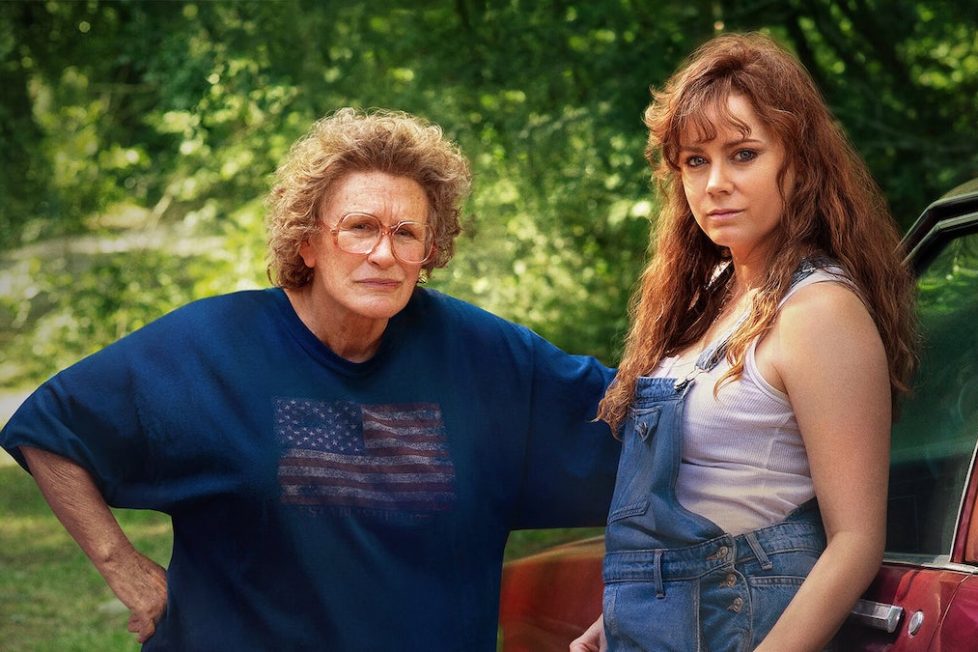
A Yale law student drawn back to his hometown grapples with family history, Appalachian values and the American dream.


Originally a memoir published months before the 2016 US Presidential Election, Yale Law graduate J.D Vance wrote Hillbilly Elegy as a self-aggrandising, politically-tinged record of his Appalachian working class family. In it, Vance extensively described his family’s supposed generational rot (which often took the form of his mother’s drug abuse or his grandparents’ alcoholism), using it to explain the social attitudes of the country’s red states.
With such a questionable foundation, the conclusions Vance drew in his memoir inevitably became the subject of rampant controversy. Much of Vance’s analyses of the American Rust Belt’s economic troubles hinged on individualistic victim-blaming perspectives on various social issues—ones that blatantly projected his own experiences and frustrations. For instance, Vance acknowledged the existence of social forces acting against the Appalachian working class, but then claimed the working class are responding poorly to these systemic issues. Other targets included the “welfare queens” Vance encountered during his paycheck-to-paycheck life, leading him to various “epiphanies” on the Democratic Party’s supposed unfairness.
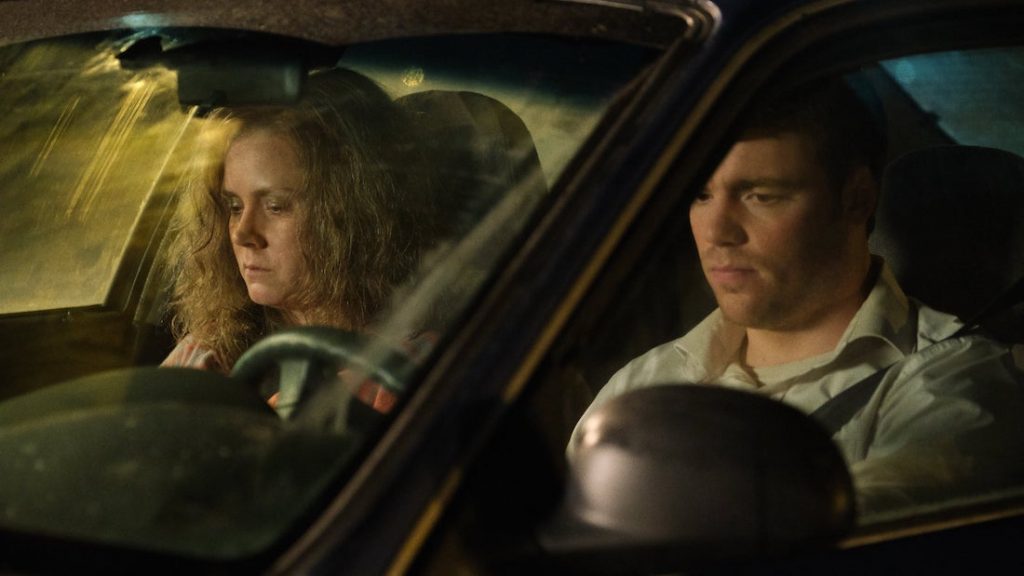
The result of such a story is, again, a purely self-congratulatory narrative. It’s an attempt to show coastal elites a Yale student who “picked himself up by his bootstraps”, elevating libertarian ideas about personal responsibility in the process. However, Ron Howard’s baffling film adaptation of Hillbilly Elegy makes the decision to remove these questionable politics entirely. It’s a film that takes a controversial story from 2016 and tries to morph it into something digestible in yet another nervous election year. Whether it be out of a desire to ignore the memoir’s troublesome politics or not, Howard’s penchant for apolitical melodrama tries to replace Vance’s commentary, something that works against the film to a laughable extent.
Howard’s Hillbilly Elegy dramatises the details of Vance’s childhood but focuses on little else. The film starts in 1997, where a young J.D (Owen Asztalos) and his family relocate to Middletown, Ohio, in an attempt to start another life for themselves. Among J.D’s family is his volatile yet fragile mother Bev (Amy Adams), his mediating sister Lindsay (Haley Bennett), and his tough-willed Mamaw (Glenn Close).
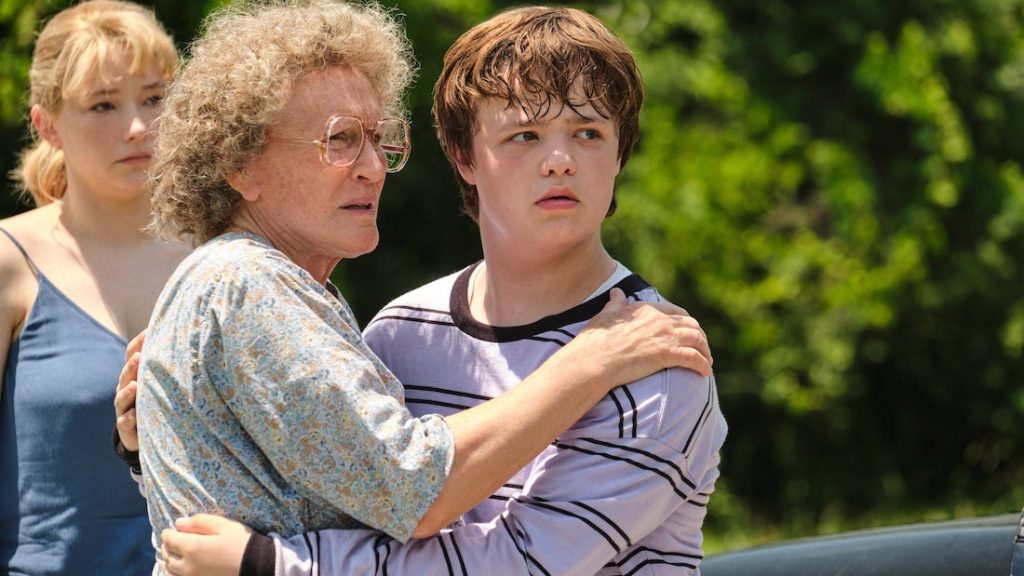
14 years later, J.D (Gabriel Basso) is now a Yale Law student unaccustomed to the university’s elite culture, and on the precipice of receiving a pivotal job interview for a law firm. Days before his interview, however, he receives an urgent phone call from his sister informing him of his mother’s heroin overdose. Deciding to return to his Ohio hometown, the resulting journey is one that drags both him and the audience through his rural past.
In the process of siphoning out the political analysis and commentary of Vance’s original memoir, the film instead opts for a spiralling nonlinear structure filled with catharsis-wringing flashbacks. Howard’s rendition of Hillbilly Elegy clumsily traverses back-and-forth between Vance as a young boy and a Yale student at the same dizzying speed that it zig-zags between different emotional tones. The result is a disorienting film that’s given no breathing room, and where all of its emotional moments feel completely unearned.
One of the film’s biggest drawbacks is its stubborn, incessant willingness to extort some kind of emotion out of the audience. A significant amount of the flashbacks detailing Vance’s family life is reliant on Oscar-clip-worthy melodrama—the majority of which is provided by J.D’s loud fights with Bev and Mamaw. The sheer frequency of these scenes (only further compounded by tawdry monologues and voiceovers), batters and numbs the audience with repeated outbursts of raw emotion. Many of the conflicts seem to blow up on a dime; they also immediately simmer down just as unrealistically quickly.
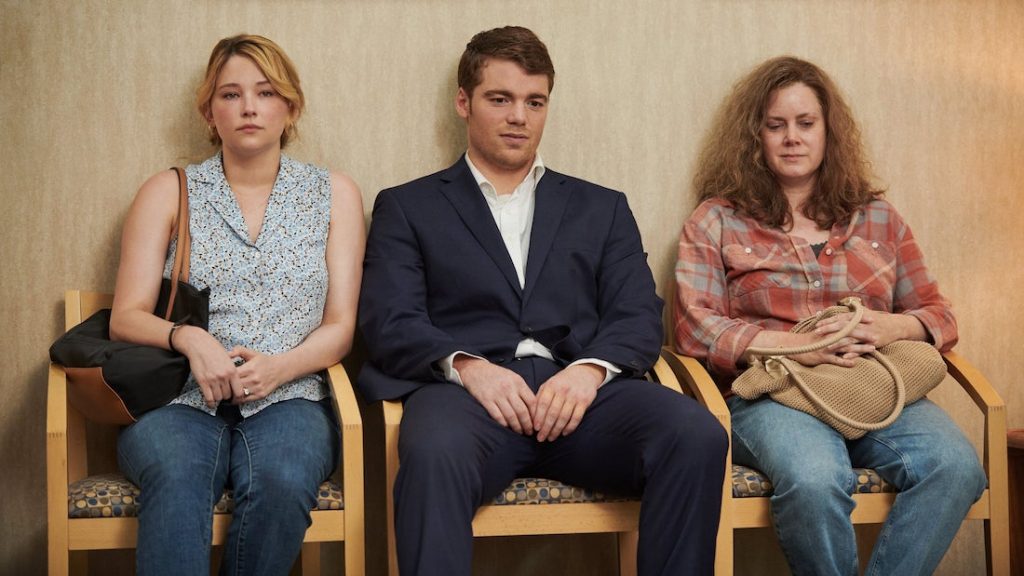
Ron Howard’s maudlin direction is much to blame for these issues. If Vanessa Taylor’s screenplay relied on such a reeling nonlinear structure, then Howard does nothing to remedy its problems or give it the payoffs it deserves. Instead, he (predictably) amplifies the script’s worst traits, exacerbating the story’s disjointedness and overdramatising a flaccid conclusion. Loose ends regarding J.D’s relationships with his mother and Mamaw are left hanging towards the end of the movie, perhaps an inevitable result for a story as deeply unstructured as this one. It might not be surprising the director of Apollo 13 (1995) and A Beautiful Mind (2001) is behind this film, but Hillbilly Elegy’s tastelessness is nevertheless alarming to witness.
Try as they might, the many talented actors can’t add a sense of dimensionality to the caricatures they’ve been offered, but Amy Adams and Glenn Close are still by far the two most interesting performers. Adams’s portrayal of Bev as a hair-trigger yet vulnerable heroin addict exhibits vague traces of a nuanced, subtle performance. However, they’re completely overshadowed by long, unintelligible stretches of screaming and flailing; fitting for a character who’s only a “decent person” in passing mention. Likewise, Close is at least fascinating to watch as J.D’s hard-skinned grandmother, however many times she pointlessly rambles on about upbringing or so-called “neutral Terminators”. They’re both incredibly prolific actresses with exceptional filmographies, but with this film, one can’t help but wonder if their Academy Award starvation has made them desperate, and neither are good enough to resuscitate the end product.
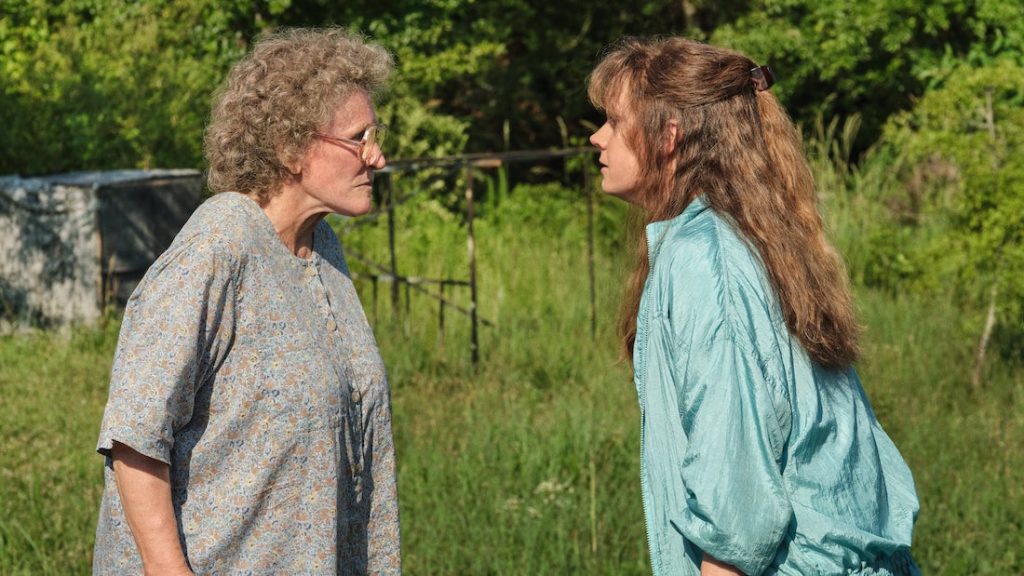
All of these insurmountable problems coalesce into a filmmaking disaster that has little of worth to say. The fundamental flaw in adapting an inextricably political story like Hillbilly Elegy is that ignoring its politics doesn’t cause them to fade away. Even though the film itself is continually marketed as a family melodrama at its core, the spectre of Vance’s commentary looms over every key moment. Several instances in Hillbilly Elegy do, in fact, show weighty social issues such as cycles of drug abuse, poverty, or intergenerational trauma. However, they’re all brushed aside either as vehicles to drive the plot, or depicted, much like the memoir, as the result of the characters’ own incompetence.
This brand of oversimplification, both on a narrative and thematic level, is Hillbilly Elegy‘s most subtle yet damning flaw. It’s a story about a family meant to seem representative, but it fails to recognise who it’s supposed to resonate with. It’s a story intended to have raw, moving emotion, but it instead resorts to caricature instead of nuance, amplifying the stereotypes it claims to avoid. It’s a story intended to validate libertarian politics on personal responsibility, but these dodgy perspectives are all rooted out to make for an accessible end product.
As absurdly outdated as J.D Vance’s memoir may be, it at least had a tangible lesson, however inflammatory or provocative; one that was meant for a specific audience. Ron Howard’s film, unfortunately, doesn’t have this privilege. It’s so safe, so pedestrian, so banal in its attempt at being digestible, that the only thing it may ever be remembered for is its lack of a real message.
USA | 2020 | 116 MINUTES | 2.39:1 | COLOUR | ENGLISH


director: Ron Howard.
writer: Vanessa Taylor (based on the novel by J.D Vance).
starring: Amy Adams, Glenn Close, Gabriel Basso, Haley Bennett, Freida Pinto & Owen Asztalos.
